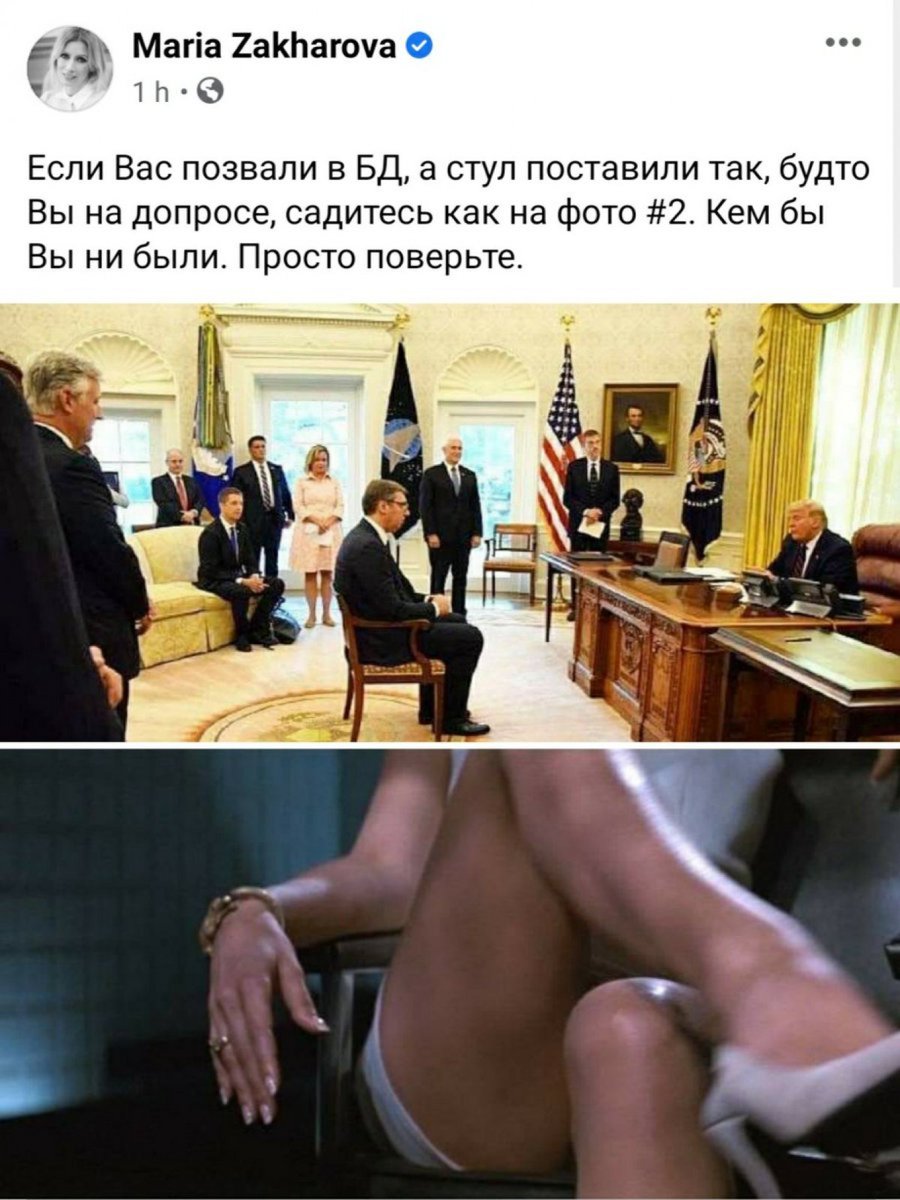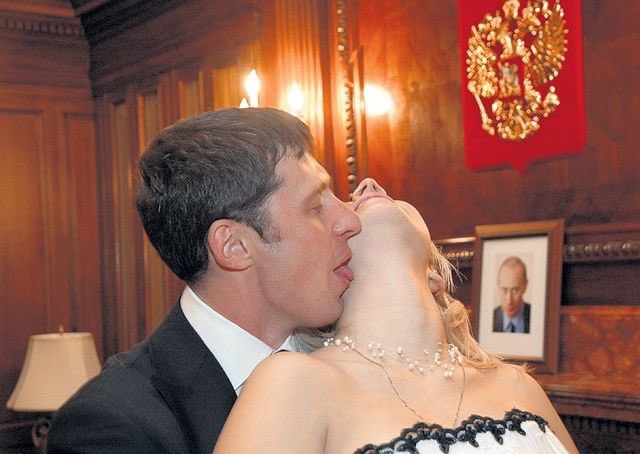In today's #vatnik soup I'll introduce a 🇷🇺 spokeswoman and a birthday girl, Maria Zakharova. She's been working at this position since 2015.
Maria married Andrei Makarov in a glamorous ceremony in New York in 2005. This soup consists of pictures from this lavish event.
1/9
Maria married Andrei Makarov in a glamorous ceremony in New York in 2005. This soup consists of pictures from this lavish event.
1/9

Maria is probably the most quoted Russian diplomat. She likes to bash the West in her speeches, and often brings up (mostly made up) contradictions from the rhetoric of the US spokespeople.
2/9
2/9

Zakharova has made some pretty weird statements throughout the years. For example, she's said that 1995 Srebrenica genocide was staged. She's said the same thing about Bucha and Izyum.
3/9
3/9

In 2016 she made an anti-Semitic joke on Russian TV, suggesting that Donald Trump won the US elections with the help of the Jews. She made her statement in a stereotypical Russian Jewish accent.
4/9
4/9

Incidentally, the only occasion when Maria has apologized was when she tweeted about Serbian president Vucic visiting Trump and compared the scene with the famous scene from the movie "Basic Instinct".
5/9
5/9

Actually, both Putin and Lavrov apologized for the incident, too. So, no apologies for genocide denial, but only for movie references - gotcha.
6/9
6/9

On 16 Feb 2022, she openly ridiculed Western intel and media predictions that Russia would attack Ukraine, saying that she should be sent the schedule so that "she can plan her vacations accordingly."
7/9
7/9

After Russia invaded Ukraine, she said that "Russia didn't start a war, it is ending it", and after that she spouted the typical "genocide of Russian population in Donbas" bullshit.
8/9
8/9
She was sanctioned by the EU on 23 Feb, 2022 as "a central figure of the government propaganda". Her assets were frozen and she was put on no fly list. On March 8, 2022, she was sanctioned by Australia and on March 18, 2022 by Japan.
9/9
9/9

She's still got it.
• • •
Missing some Tweet in this thread? You can try to
force a refresh

































